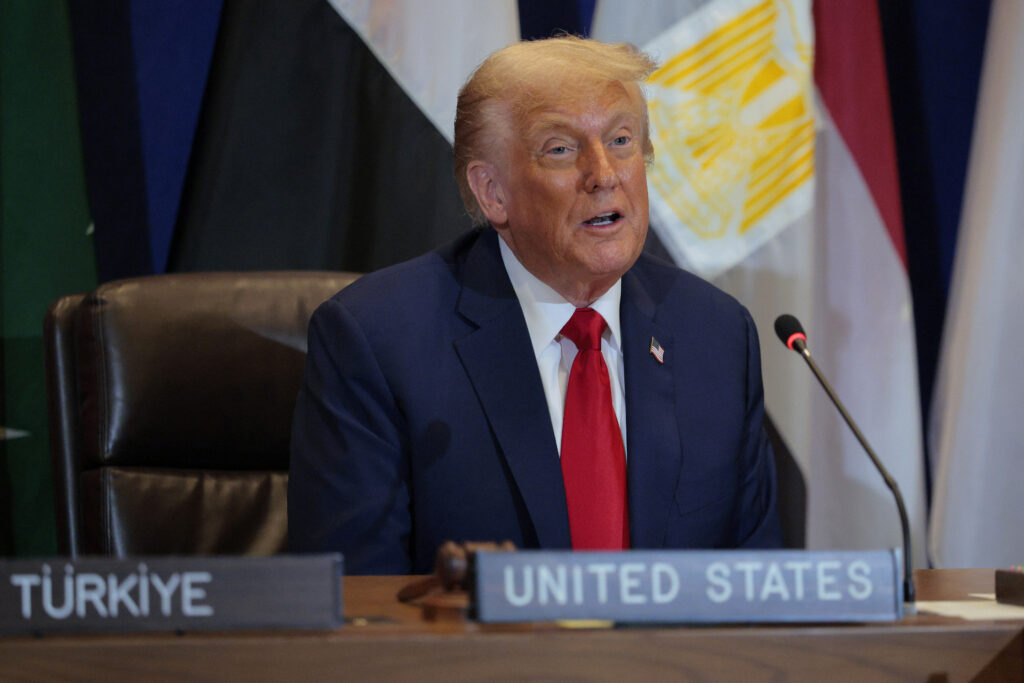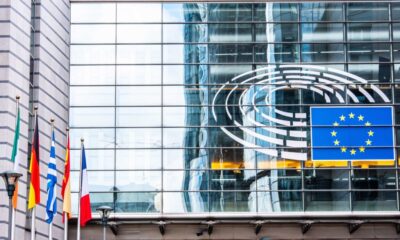EU Affairs
Germany backs EU’s ‘creative’ plan to send frozen Russian cash to Ukraine

Read more on post.
Supporters of the Commission’s plan claim that it would be legally secure as it wouldn’t technically expropriate the Russian assets themselves. But some, including the firm holding the cash, Euroclear, fear it will expose them to legal risk.
French President Emmanuel Macron also struck a more cautious note, saying in an interview earlier this week that “you cannot seize these assets from the (Russian) Central Bank” because it would violate international laws.
The German government, on the other hand, is keen to use the “reparations loan” to offer military support to Ukraine as opposed to rebuilding damaged buildings and infrastructure, three officials with knowledge of the talks told POLITICO.
The €172 billion question
The bulk of the Russian assets are held by the Brussels-based financial firm Euroclear and are invested in Western government bonds that have matured into cash.
The Commission suggested using this cash — which amounts to €172 billion, according to two officials with knowledge of proceedings — to fund a “reparations loan” to Ukraine, while leaving €13 billion of underlying assets untouched.
With Ukraine facing a gaping budget shortfall next year, the Commission sees this solution as the last chance to support the war-torn country without tapping into taxpayers’ money.
EU Affairs
Richterwahl: Nach der Krise ist (hoffentlich nicht) vor der Krise

Read more on post.
Richterwahl: Nach der Krise ist (hoffentlich nicht) vor der Krise – POLITICO
Advertisement
EU Affairs
UK energy chief eyes an oil and gas loophole

Read more on post.
That involves a parallel process, where the NSTA assesses a project’s development plan while OPRED judges its environmental statement.
The NSTA can’t sign off the development plan or grant drilling consent, though, until OPRED has completed its assessment. During the OPRED process, the environmental statement has to be signed off by DESNZ, effectively giving Miliband a mechanism to overrule the regulator’s recommendations.
That would give Miliband “in theory … lots of discretion to override regulator decision-making,” said Martin Copeland, chief financial officer at Serica Energy, one of the country’s largest oil and gas companies.
Paul de Leeuw, an energy expert at Aberdeen’s Robert Gordon University, called the guidance “pragmatic” and “timely,” adding it provides “the secretary of state with the powers to make a balanced and informed decision, reflecting a wide range of considerations.”
A second senior oil and gas industry figure — who has held talks with all major parties including the government and was granted anonymity to discuss sensitive lobbying — said they sensed “a split in government along the lines of environment and economic growth.”
There are fresh political pressures on Miliband just as these new powers take effect, the same person said.
“I think there has been winds of change blowing through Westminster in recent months. I think that’s due to a number of reasons. Obviously, the ‘Trump effect’ [backing aggressive fossil fuel drilling in the U.S.] is having a significant impact and it’s galvanizing the right. It’s galvanizing Reform and it’s galvanizing the Tories.”
EU Affairs
UK looks to lure talent caught by Trump’s visa bombshell

Read more on post.
Luke Sullivan, a former political secretary to Starmer, now a director at consultancy Headland, said Reform’s indefinite leave to remain announcement demonstrated the “complex” policy area is “fraught with political and economic trade-offs.”
The top talent Reeves is hoping to attract is listening.
Even without being implemented, Reform’s proposals would “have a negative impact on the attractiveness of the U.K. as a destination for the world’s brightest and best researchers because people may worry their right to be in the country could be taken away,” Alicia Greated, executive director of the Campaign for Science and Engineering, said.
“Retrospective changes of this sort would be extremely damaging to U.K. R&D and the wider economy, as well as individuals and their families,” she added.
Eamonn Ives, research director at The Entrepreneurs’ Network, a London-based think tank that advises on entrepreneur-friendly policies, agreed that international talent needs certainty.
“Instead of jeopardizing the residency status of immigrants already here, we should be doing all we can to welcome the world’s brightest and best,” he said.
“That means having pathways in place to enable international talent to come here, and then giving them the certainty they need to settle down and start building lucrative companies,” he added.
-
Culture2 days ago
Taylor Swift’s new cinema outing generates more than €12million in just 24 hours
-
Politics2 days ago
European Parliament snubs Orbán with vote to shield Italian MEP from Hungarian arrest
-
Culture2 days ago
Milan Fashion Week 2025: Unmissable shows and Giorgio Armani in mind
-
Business20 hours ago
Households to be offered energy bill changes, but unlikely to lead to savings
-
Opinion2 days ago
Fintan O’Toole: How can you live with the knowledge that you have facilitated mass murder?
-
Culture3 days ago
Marvel stars Mark Ruffalo and Pedro Pascal stand up for Jimmy Kimmel as Disney boycott intensifies
-
Health3 days ago
EU renews support for WHO’s Universal Health Coverage Partnership
-
Opinion2 days ago
AI Is Pointless If It Doesn’t Boost Productivity
















































